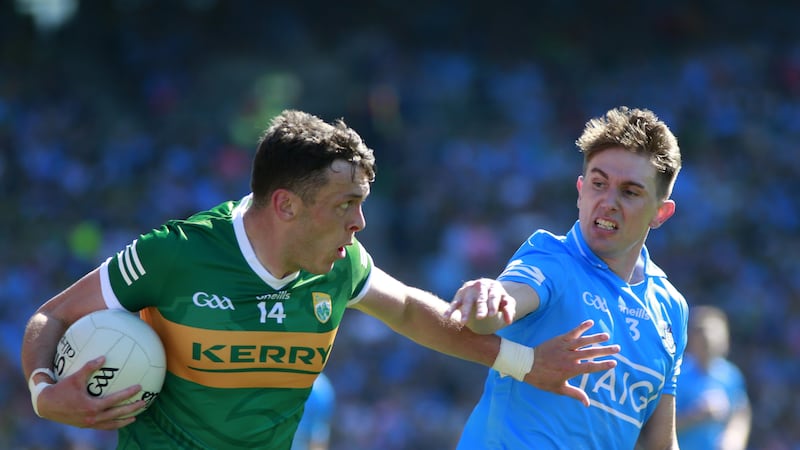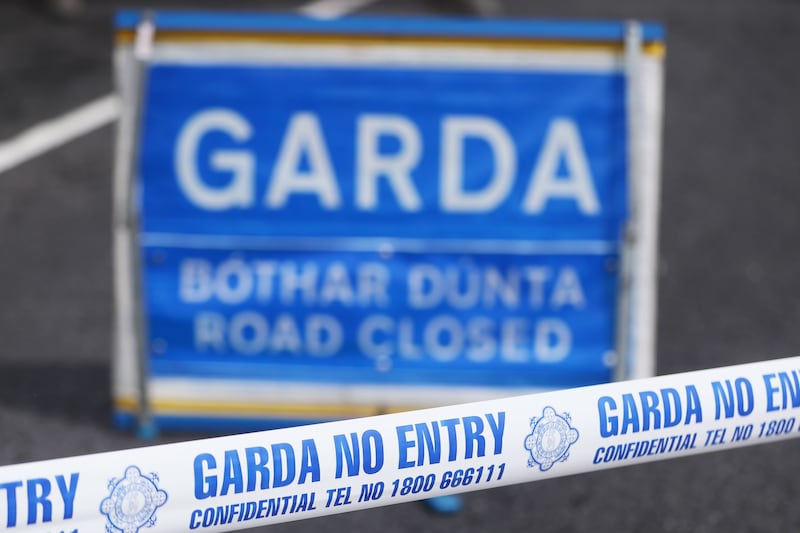LONG before Joe Brolly, there was Joe Lennon.
Almost 50 years before the Derry man wrote the Kerry production line off and gave birth to Kieran Donaghy’s annoyingly-lingering catchphrase, Down’s 1968 captain had irked them with a similar statement.
Lennon, also part of the 1960 team that beat Kerry in the decider as well, said after the Munster side’s second straight loss in a decider to Galway in ’65 that their style of football was “ten years out of date”.
The great Maurice Hayes had noted the limitations of the way Kerry played.
He spoke in 2007 about how under famous coach Dr Eamonn O’Sullivan, their players largely kept to their own zone of the pitch and that their midfielders always went to catch the ball.
Hayes told Weeshie Fogarty in an interview that “what we decided to do was introduce mobility into Gaelic football. So your full-back or half-back could move upfield with the ball and even make or get a score. I think it took Kerry a good while to come to grips with this change.”
Joe Lennon and Jarlath Kerry deliberately broke the kickouts off Mick O’Connell and were set up beneath them to win what fell loose, a tactic basically unheard of before then.
Kerry won seven of the next 13 All-Irelands after 1968.
They did so by doing what they’ve always done best: adapting.
Ulster football has had a huge influence on Kerry’s success because it was what made them think most about what they were doing.
It took three big defeats at the hands of the nouveau riche Tyrone lads for them to admit they’d have to join them to beat them.
But of equal importance is that they’ve never fully abandoned the principle of kick-passing football.
The training field instruction I could never wrap my head around was the idea of driving a ball into an inside forward with your laces, as if your job was just to get it there and his was to win it.
That never made any sense when you watched Kerry’s attack. Everything was kicked with the instep, one-hop, into the space on the forward’s side.
To this day, if you let them play like that, they’ll leave every sinew of your intestines out on display in Croke Park.
It’s often tempting for white-booted half-backs, the socks to their knees, to deliver an Exocet missile off the outside of the boot. The poor forward has to try and control it.
A coaching friend of mine has a great line about kick-passing the ball to an inside forward.
“Pass the ball as if you’re making love – give it the way your partner wants to receive it, not the way you want to give it.”
It is ten years since Gaelic football plateaued.
It’s this column’s opinion that the 2013 Dublin-Kerry semi-final was the greatest game ever played, the most perfect blend of everything traditional and the modern parts.
After 18 minutes, it was 2-3 to 1-6. Colm Cooper, out playing at 11, danced backwards into the spaces, manoeuvred a way on to his left foot and sliced Dublin open down the middle.
The attacking play on both sides was absolutely devastating. A game of six goals could easily have had 12.
With 69 minutes on the clock, the teams are level at 3-11 to 1-17.
Just before the kickout, the camera lands on Eamonn Fitzmaurice. He lifts his arm to deliver an instruction but before the words can leave him, he withdraws it again.
The futility of it becomes evident. Nothing more he can do now, so he just puts his hand back on his hinch and draws another intake of breath.
Stephen Cluxton’s kickout lands on three Kerry players against one Michael Darragh Macauley. One of him, and the big brave right claw, was enough.
“Here’s Kevin McManamon. Memories of 2011 as he bursts through. The sides are level. McManamon still going…HE’S DONE IT!” bellows Darragh Maloney, his commentary befitting of the moment’s gravitas.
If Ulster made Kerry what they are then Kerry have to take some credit for making Dublin what they are.
“Beating Kerry in an All-Ireland final was always a double All-Ireland to me,” said Kevin Heffernan once.
They hopped off each other relentlessly in the late 70s. The years for which they both disappeared between then and 2011 almost ran concurrently.
Their occasional meetings, such as in 2001, still carried an electricity but the rivalry simmered rather than boiling.
Kerry couldn’t beat the Dubs for 12 years until Sean O’Shea landed a free they should never have needed to get over the line.
Dublin-Mayo is seen as the rivalry that defined the decade, but Kerry’s part in it all is often overlooked.
They never won but neither did Mayo.
The Dubs’ bench carried them across the line every time. It may well be the case again on Sunday.
Six-and-a-half minutes left in 2011, Kerry lead by 1-11 to 0-10 when Declan O’Sullivan gives the ball away.
That 2013 game is level after 69 minutes.
Even though Dublin were much the better side in 2015, it was 0-10 to 0-8 with an hour gone.
Stephen O’Brien fisted a 71st minute equaliser the following year.
The drawn 2019 final, Kerry lead by a point three minutes into stoppage time. They never got the replay back after Eoin Murchan’s goal, having been 0-10 apiece at that stage seconds after half-time.
Naturally given that the local currency is Celtic Crosses, Kerry have never been given enough credit for what they offered to the football championship in that period.
Dublin were the greatest team of all-time, yet they’ve credit outstanding for that too. The humanity of their last two seasons has diluted the money argument.
It feels easier to appreciate their brilliance now, particularly that of James McCarthy, Stephen Cluxton and Mick Fitzsimons as they bid for an historic ninth All-Ireland this weekend.
It’s fitting, almost inevitably so, that it’s Kerry again as they look to eclipse the eight-time winning quintet of Mikey Sheehy, Pat Spillane, Ger Power, Denis ‘Ogie’ Moran and the late Paidi Ó Sé.
That they’re back in an All-Ireland final owes at least something to a return to the devastating attacking principles on which they built it, even if it wasn’t sustained in that way.
Their team against Monaghan contained five inside forwards and Niall Scully. The goal against Mayo was just a ball turfed in by Davy Byrne. There’s a dash and an adventure about them that had become a bit lost.
At their best they were absolutely brilliant at the robotic stuff but they’re not as good as that now. They can’t rely on controlling a game from start to finish. In recognising that and allowing a bit more off-the-cuff stuff, they’ve reformed themselves.
The two counties are, and will remain, inextricably linked in their unending pursuit of success.
Gaelic football has kicked and battered at their basic attacking principles from every angle, yet they’re still the two left standing.
You can get sick looking at them, or you can ponder what would it be like if Kerry didn’t have Dublin and Dublin didn’t have Kerry.
It is the rivalry that defines our sport.
And a final to be cherished, always.









